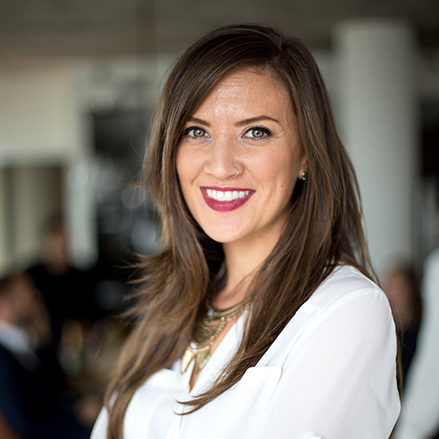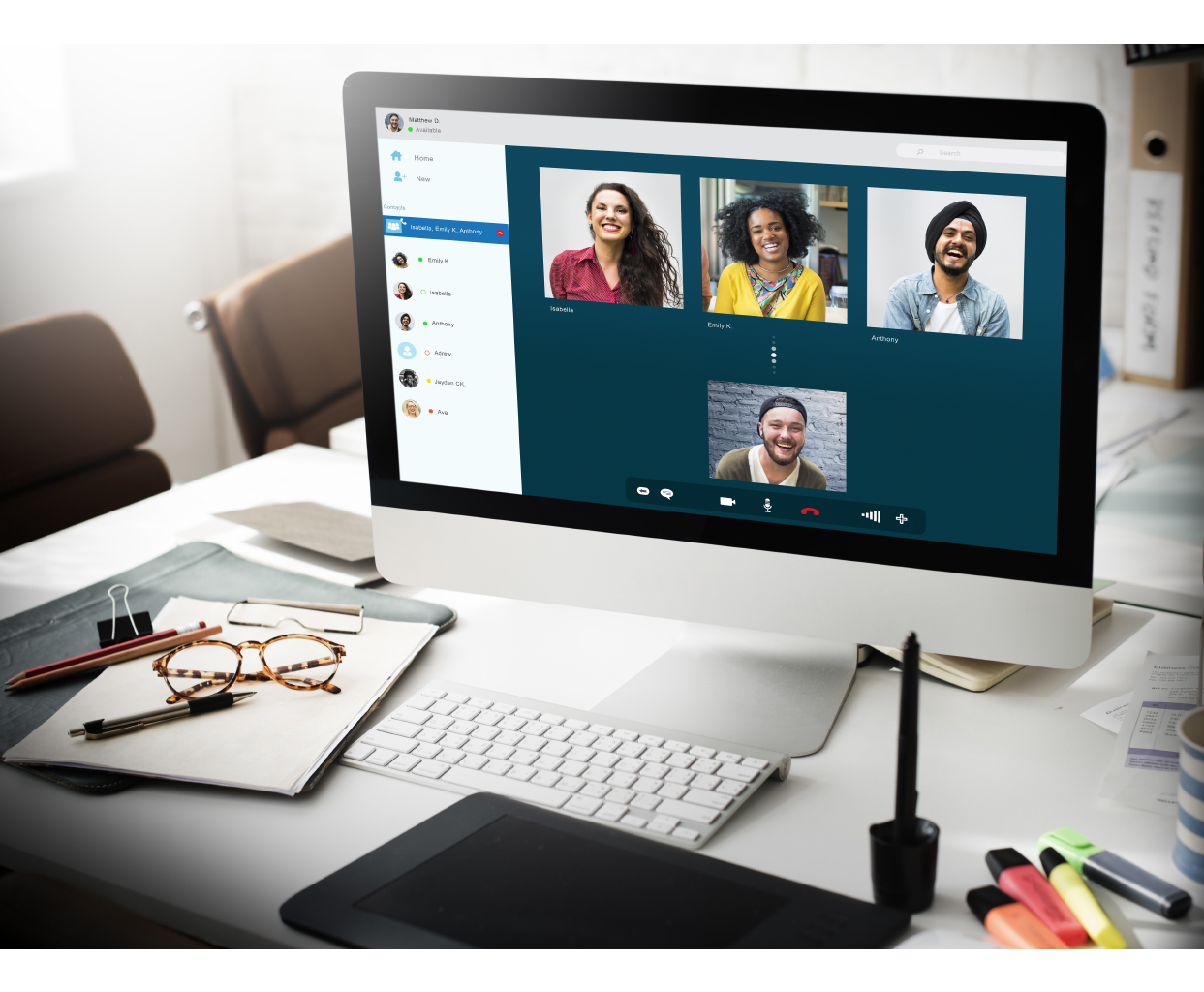Want to offer meaningful support to employees in these strange and uncertain times? Consider the example of health care company based north of Chicago that has succeeded not only in engaging employees through volunteerism, but also increased enthusiasm for their Signature Program and held a wildly successful virtual training despite the challenges of the pandemic. How are they doing it? And what best practices can you learn from as you plan for 2021?
The Best Signature Program of 2020
Before the pandemic of 2020, the global healthcare company Abbott had high hopes for their new, skills-based employee volunteer program. After many months of strategic planning, communications, training, and preparation, Future Well Kids launched in August of 2019. Highly engaged and well-trained Future Well Kids Volunteer Champions arrived with their volunteer teams at schools in 19 locations in 3 different countries. Together, they led kids ages 10-13 through curriculum to teach them how to develop healthy habits now to reduce their likelihood of developing chronic diseases like type 2 diabetes, heart disease, respiratory disease and most cancers. The program experienced quick success and by the end of the 2019 school year, the Volunteer Champions had expressed eager interest in coming back for year two.
“I’m so proud to work for Abbott and one of the main reasons is the Future Well Kids Program. It makes me happy to contribute to future leaders of the world and I can’t wait to get started again this fall!”
Laying a Pandemic-proof Foundation
2020 started out strong, thanks to the processes and partners of the program. Senior Manager of Global Citizenship, Bree Vopelak, cites three essential decisions that laid the foundation for what would bolster the program successfully through the months to come:
- The Right Focus. “We chose noncommunicable diseases because that’s a topic that we, at Abbott, know a lot about, with nutrition, diagnostic and medical device businesses and experts focused on finding new answers for cardiovascular disease and diabetes. We also knew that if we wanted to help decrease the incidence of chronic disease, we needed to educate kids about the importance of developing healthy habits at an early age. Even when the pandemic hit, no one questioned the relevance of this topic because many of these chronic diseases are underlying conditions that could cause significant risk for people affected by COVID-19.”
- The Right Partners. “Realized Worth played a vital role in helping us develop our Volunteer Champion strategy including recruitment and training. We developed the curriculum for the program in partnership with Discovery Education, the global leader in standards-based digital content for K-12. And Catalysis LLC is an organization we’ve worked with for years to help implement our programs. But our most important partners are the community organizations and schools where we deliver the program. We work to develop a relationship with these community organizations and schools, and get to know the students and teachers in the classrooms. So when the pandemic hit, we knew that we couldn’t let our community organization and school partners down. And these relationships were exactly what we needed to collaborate and adjust how we implemented the program.”
- A Realistic Timeline. “This program aims to equip kids with the knowledge required to prevent non-communicable diseases. It’s a complex topic and not something that can be taken lightly. We spent time planning, writing curriculum, preparing in partnership with the schools, and making sure we had the support mechanisms in place for Volunteer Champions before we launched. Getting it wrong was not an option, so we gave ourselves time to lay a strong foundation and get it right. When the pandemic hit, this strong foundation is what allowed us to pause, strategize, and adapt without the floor falling out from under us.”
How to Adjust and Adapt
Even with the right focus, the right partners, and a realistic timeline, adapting employee volunteer programs to the realities of a pandemic is not easy – especially when the program requires in-person implementation in schools. Bree, her team, and the Future Well Kids partners asked themselves, “How will we effectively deliver curriculum that centers on group activities and physical interaction? How will we train Volunteer Champions who last year spent two days in person getting ready for the high demands of this program? How will we keep Volunteer Champions engaged virtually? How will we ensure both kids and volunteers are receiving the benefits the program promises?” The challenges were large and looming, but we all stepped up to take them on. Realized Worth partnered with Bree and her team to co-create a 2-day virtual Volunteer Champion training that would be one of the most engaging experiences of the employees’ year – virtual or otherwise.
In 2019, Abbott’s 2-day training was a best practice investment that paid off in multiples. One employee in particular stated that it was his favorite training he had attended in all of his 30 years at Abbott. Volunteer Champions were flown in from 3 countries to hear from Abbott leadership, workshop with partners, troubleshoot curriculum, and gain knowledge and insight on effective leadership. They spent time together, got to know each other, heard about their motivations behind the program, and shared personal stories. The value of being together in person was unquestionable and threatened to be a difficult experience to duplicate virtually. Some companies around the world who faced similar challenges paused programming and stopped supporting employee volunteers as they waited for things to “normalize.” But not Abbott.
Top 4 Lessons Learned About Training in a Virtual World
- Treat it like it’s real – because it is! Throughout the planning process, Abbott refused to see “virtual” as a limitation. Rather than paring down the content, shortening the commitment, and assuming that “virtual” isn’t as real as in-person, they put even more time and effort into this virtual event to give it the value Volunteer Champions deserve. Before the event began, attendees received Future Well Kids SWAG to use at the event – notebooks, pens, and t-shirts – just like they would at an in-person training. Bree secured an online conference platform and set it up with familiar videos, logos, photos, and information to show people where to go and what to do when they arrive. She planned a full agenda that accommodated multiple time zones and even included optional early morning exercise sessions and pauses throughout the day for stretching and networking. Everything about the plan, the platform, and the agenda communicated to attendees said, “You matter enough for this to be real.” And attendees felt it clearly enough to verbalize their surprise and delight throughout the event.
- Schedule unscheduled time. The reality of the pandemic has eliminated water cooler time, chats before meetings, and walks back to the office together. Every minute of every day is scheduled and guided by an agenda and we’re all feeling the loss. To create space for genuine connection, include time in your agenda that is intentionally “unscheduled.” The Future Well Kids training included time to visit “booths” (our conference platform allowed booth-specific chats and information-sharing), meet up with various experts and attendees, take lunch breaks, and enjoy a variety of happy hours. These extra spaces colored the schedule with personality and served to solidify our identity as a group.
- Bring in experts. A huge chunk of the two-day agenda was dedicated to break-out sessions led by representatives from Discovery Education, Catalysis LLC, Realized Worth, local schools, and employees and leadership at Abbott. The topics ranged from troubleshooting curriculum topics to culturally sensitive volunteering to how to understand and relate with kids these days. Hearing from these experts validated the efforts of Volunteer Champions and gave them shareable knowledge and actionable understanding to equip them in their role. The breakout rooms took place in small enough groups that discussion and video interaction were both possible and they led to practice sessions where employees could immediately apply what they learned. Our follow-up survey asked the question, “What was your favorite part of the training?” and almost every answer included a reference to one of our guest experts.
- Emphasize the human aspect. In addition to scheduling unscheduled time to create a genuine sense of connection, we added a few key elements to emphasize the human aspect of the work we’re doing together. First, we asked our speakers to limit their screensharing and PowerPoint presentations – in fact, we eliminated PowerPoints almost entirely! We chose instead to have relatively short sessions with speakers on screen. During sessions that included panels, we adopted a “podcast” style that creating an engaging back and forth style and gave every speaker a voice. When each speaker presented, they called out the chat feature and invited people to come off mute to ask questions or share their own experience. The chat feature served as an effective source of personal connection – we even gave out awards to the most engaged participants! Finally, we engaged a digital artist to visually depict attendees’ answers to the question, “What’s your why?” As people shared via the chat, the artist quickly drew images and words to summarize their personal and meaningful thoughts on why they volunteer. Watching our “why” come together in one artistic depiction demonstrated that we are all, in fact, in this together and we all belong.
Of 82 employees who attended the 2020 Future Well Kids Volunteer Champion Virtual Training, approximately 70 responded to the post-event feedback survey. 94% gave the training an overall rating of 4 or 5 out of 5. 98% said being a Volunteer Champion is personally fulfilling and 96% said they would recommend being a Future Well Kids Champion to a friend. One employee specifically stated, “I think Future Well Kids is a really important program and definitely more hands-on and rewarding than other volunteer programs I have been part of in the past. I know the commitment might not be for everyone, but I still would talk to people about it and how I have been able to handle it and refer to other fellow Champions if the person was interested, but unsure.”
Going beyond survey results and employee feedback, the depth of connection we witnessed at the Future Well Kids Virtual Training was so palpable that when I reflect on the memory in my mind, I realize I am looking at a mental picture of the entire group in person together. It’s as if, during the workshops and breakout sessions and special speakers and casual chats, the barriers of our virtual world gave way to a shared sense of humanity. Even in a strange year, we drove social movements, contributed to better futures, and we realized we each have something to give. Like one employee said, “I have never been in any training that was so inspiring. It gave me a purpose beyond just carrying out the Future Well Kids project. I met amazing people and listened to stories that gave me belief in the true impact I can have.”






